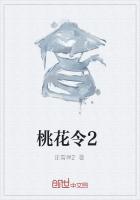The king had just awakened from his midday sleep, for it was summer, and everyone rose early and rested from twelve to three, as they do in hot countries. He had dressed himself in cool white clothes, and was passing through the hall on his way to the council chamber, when a number of young nobles suddenly appeared before him, and one amongst them stepped forward and spoke.
'Sire, this morning we were all playing tennis in the court, the prince and this gentleman with the rest, when there broke out some dispute about the game. The prince lost his temper, and said many insulting things to the other, who was playing against him, till at length the gentleman whom you see there struck him violently in the face, so that the blood ran from his mouth and nose. We were all so horrified at the sight, that we should most likely have killed the man then and there, for daring to lay hands on the prince, had not his grandfather the duke stepped between and commanded us to lay the affair before you.'
The king had listened attentively to the story, and when it was ended he said:
'I suppose the prince had no arms with him, or else he would have used them?'
'Yes, sire, he had arms; he always carries a dagger in his belt.
But when he saw the blood pouring from his face, he went to a corner of the court and began to cry, which was the strangest thing of all.'
On hearing this the king walked to the window and stood for a few minutes with his back to the room, where the company of young men remained silent. Then he came back, his face white and stern.
'I tell you,' he said, 'and it is the solemn truth, that I would rather you had told me that the prince was dead, though he is my only son, than know that he would suffer such an injury without attempting to avenge it. As for the gentleman who struck him, he will be brought before my judges, and will plead his own cause, but I hardly think he can escape death, after having assaulted the heir to the crown.'
The young man raised his head as if to reply, but the king would not listen, and commanded his guards to put him under arrest, adding, however, that if the prisoner wished to visit any part of the city, he was at liberty to do so properly guarded, and in fifteen days he would be brought to trial before the highest judges in the land.
The young man left the king's presence, surrounded by soldiers, and accompanied by many of his friends, for he was a great favourite. By their advice he spent the fourteen days that remained to him going about to seek counsel from wise men of all sorts, as to how he might escape death, but no one could help him, for none could find any excuse for the blow he had given to the prince.
The fourteenth night had come, and in despair the prisoner went out to take his last walk through the city. He wandered on hardly knowing where he went, and his face was so white and desperate that none of his companions dared speak to him. The sad little procession had passed some hours in this manner, when, near the gate of a monastery, an old woman appeared round a corner, and suddenly stood before the young man. She was bent almost double, and was so wizened and wrinkled that she looked at least ninety;only her eyes were bright and quick as those of a girl.
'Sir,' she said, 'I know all that has happened to you, and how you are seeking if in any wise you can save your life. But there is none that can answer that question save only I myself, if you will promise to do all I ask.'
At her words the prisoner felt as if a load had all at once been rolled off him.
'Oh, save me, and I will do anything!' he cried. 'It is so hard to leave the world and go out into the darkness.'
'You will not need to do that,' answered the old woman, 'you have only got to marry me, and you will soon be free.'
'Marry you?' exclaimed he, 'but--but--I am not yet twenty, and you --why, you must be a hundred at least! Oh, no, it is quite impossible.'
He spoke without thinking, but the flash of anger which darted from her eyes made him feel uncomfortable. However, all she said was:
'As you like; since you reject me, let the crows have you,' and hurried away down the street.
Left to himself, the full horror of his coming death rushed upon the young man, and he understood that he had thrown away his sole chance of life. Well, if he must, he must, he said to himself, and began to run as fast as he could after the old crone, who by this time could scarcely be seen, even in the moonlight. Who would have believed a woman past ninety could walk with such speed? It seemed more like flying! But at length, breathless and exhausted, he reached her side, and gasped out:
'Madam, pardon me for my hasty words just now; I was wrong, and will thankfully accept the offer you made me.'
'Ah, I thought you would come to your senses,' answered she, in rather an odd voice. 'We have no time to lose--follow me at once,' and they went on silently and swiftly till they stopped at the door of a small house in which the priest lived. Before him the old woman bade the prisoner swear that she should be his wife, and this he did in the presence of witnesses. Then, begging the priest and the guards to leave them alone for a little, she told the young man what he was to do, when the next morning he was brought before the king and the judges.
The hall was full to overflowing when the prisoner entered it, and all marvelled at the brightness of his face. The king inquired if he had any excuse to plead for the high treason he had committed by striking the heir to the throne, and, if so, to be quick in setting it forth. With a low bow the youth made answer in a clear voice:
'O my lord and gracious king, and you, nobles and wise men of the land, I leave my cause without fear in your hands, knowing that you will listen and judge rightly, and that you will suffer me to speak to the end, before you give judgment.















